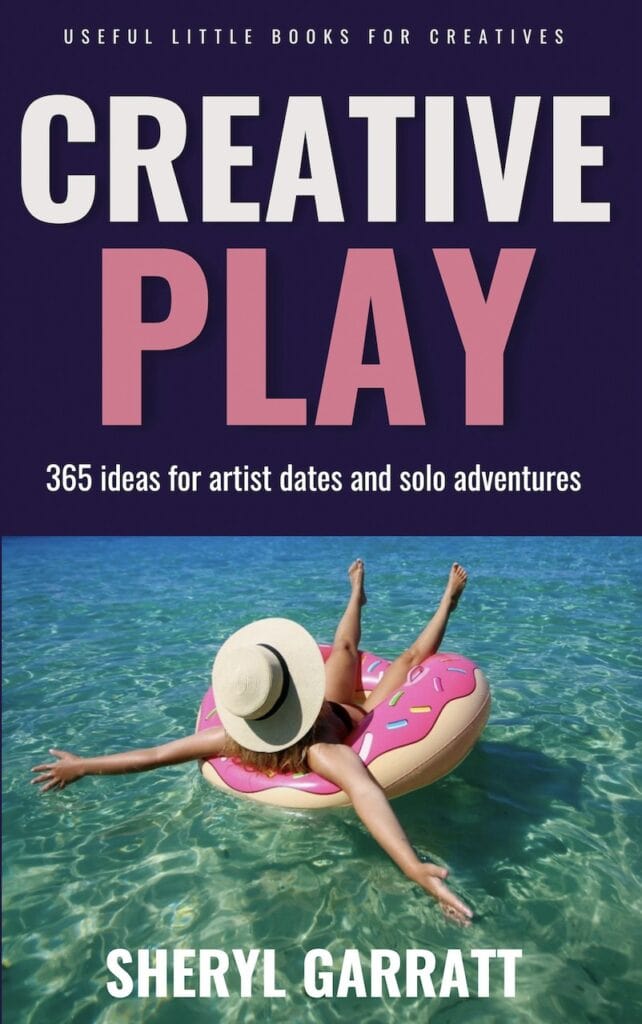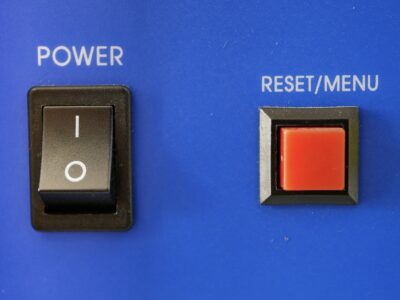Busyness is not a badge of honour.
If your schedule is packed every day, if you never have time or space to think, slow down, to take care of yourself or to have fun, you need to reorganise your life.
To be at our best, we all need time and space to dream, to explore, to connect with friends and family – and to play.
Ideally, creatives need regular play dates, dedicated time to explore whatever is interesting to us, or simply do what brings us joy. Even when this isn’t immediately ‘productive’, it keeps our creative practice fresh and alive.
“We don’t stop playing because we grow old,” said the writer George Bernard Shaw. “We grow old because we stop playing.”
Sometimes, a packed schedule is unavoidable.
We all have deadlines, projects to get over the line, times when we have to go all-in and there’s no time to take extended breaks. In times like these, get into the habit of stealing spaces. Take micro-breaks.
Find ways of bringing yourself back into the present moment, of stretching out time and getting out of your head and back into your body.
It needn’t take long.
And taking a moment will probably save you time. When things get hectic, it’s easy to get caught on the hamster wheel, frantically doing tasks that aren’t really moving you forward.
After a micro-break you’ll be calmer, more able to prioritise and see what’s really important. You’ll find it easier to laugh when things go wrong, instead of creating drama.
Not sure how to start? Here are ten simple suggestions.
1. Wake up and smell the coffee.
Really. Make your first drink of the day into a ritual: brew a fresh coffee or tea. Make your juice or smoothie slowly, mindfully, trying to be fully present.
Use your favourite cup or mug. Smell it. Watch the steam rising from it. Feel the heat from it.
Sip it, savouring every mouthful. If you can go outside to drink it, so much the better.
While you’re savouring it, list three things you’re grateful for. Or think about your priorities for the day ahead. What’s most important? What can wait? What could you delegate — or delete completely?
This will take only a minute or two longer than usual. But it will set you up to face the day’s challenges calmly. And of course you can choose to do this every time you have a drink, throughout the day.
2. Breathe
Just stop whatever you’re doing. Stretch if you can, then take five long, deep breaths. And that’s it.
Feels good, no?
3. Use this eight-word mantra.
Take a deep breath in on the first word of each line. Breathe out as you silently say the second word.
In, out.
Deep, slow.
Calm, ease.
Smile, release.
Repeat this micro-meditation to recentre yourself every time you switch to a different task, end a call or arrive at a meeting.
Feel your shoulders drop, tension release. And notice how different you feel when you smile.
4. Listen more deeply.
When someone talks to you, try not to interrupt with solutions, your own experiences or stories.
Ask brief questions, to get them to tell you more. Or simply reflect back what the person has just told you.
They’ll feel truly heard, which is a gift in these noisy times. You’ll get a break from your own thoughts, stories, issues. And it will stop you adding to your already heavy load by making their problem your problem.
5. Just say no.
When your schedule is full, postpone or cancel commitments. You can’t do everything. So make space to do the most important things well.
If you’re leading a project, or known for getting things done, you might find that even when you’re overloaded, people bring you more. A useful phrase: “I’m at capacity, right now.”
Encourage them to look elsewhere for the help they need, or empower them to come up with their own solutions.
Something that worked for me, when leading editorial teams: ask people to come to you with problems only when they also have 2–4 solutions to discuss, no matter how out-there or ridiculous.
Often this led them to solve problems without involving me at all. But if they still needed my input, it gave us something to work with.
6. Go for a walk.
A brisk 5–10 minute walk can change your mood and your energy levels completely. Even on a busy way, there are ways to work this into your schedule.
- Park a little further away from your destination, or at the far end of the car park.
- Take a slightly longer route to a meeting. Or even to the photocopier or printer.
- Volunteer to go on the coffee run.
- Take the stairs, not the lift.
7. Do a micro-workout.
There might not be time to get to the gym, to the pool, to a class. But you can do a few squats or lunges while you’re waiting for a kettle to boil or a file to download.
You can stretch at your desk, or even during a phone call. Take calls and face-to-face meetings standing, if you can.
Any kind of movement helps. And over a day, it all adds up to less stress, more fitness.
8. Dance!
This is an instant energiser/mood-changer. If you work alone, put some music on loud and move like crazy for just one song. High-kicks, star jumps – anything goes.
You can dance like no one is watching. Because no one is.
9. When eating, eat.
And nothing else. Leave your workstation, if you can. Ideally, get outside.
Eat slowly, mindfully, chewing each bite at least 10 times. Really focus on the taste and texture of the food. Don’t think about work, about what you need to do next, about anything other than what you’re eating.
Think of all the people who have contributed to this meal. The baker who rose early to make the bread. The farmer who grew the wheat to make the flour. The pickers who harvested the vegetables. The drivers who transported it all. The people who assembled the sandwich, the salad, or cooked whatever else you’re eating.
Thank them all. Feel it nourishing your body, giving you energy. This will only take a few minutes longer than wolfing your food down mindlessly in front of a screen. But you’ll get back to work feeling centred and calm.
10. Go to bed a little earlier.
This one is obvious, yet when your mind is whirring, it can feel more relaxing to binge on a box set, scroll late into the night or decompress with a computer game. You might feel you’re owed that, that you deserve it after a full day.
The problem? The blue light of the screen will keep you awake, the adrenalin will keep pumping, and the following day, you’ll be running on empty.
Read a book instead. Listen to a podcast or music. Or just snuggle in and get some extra sleep. If you’re busy, you need it!
A book to help you play more (and work better)

Making time to play, explore, try new things without needing it to yield an immediate result is a key part of any creative practice.
When you’re self-employed or on a deadline, it can also be the part you neglect!
This short, practical book explains why you might need to bring more play into your life and work – with 365 ideas to start you off.
This is for you if:
- Your creative work is feeling grey, uninspired, heavy and difficult.
- You’ve read Julia Cameron’s book The Artist’s Way but never found time for the Artist Dates (or you couldn’t think what to do).
- You want to bring more playfulness into your life.
- You’ve lost touch with your creativity and you want to come back to it.
- It’s been a long, long time since you’ve given yourself a break.
It will help you get into flow more easily, step back and see what’s important, feel more inspired and alive – and just have more fun!
Available now from Amazon, at £8.99 (paperback) or £5.99 (Kindle). I appreciate that not everyone wants to use Amazon, so you can also buy the e-book directly from me if you’d prefer.






I love these. Thank you. I would add: nap outside 🙂